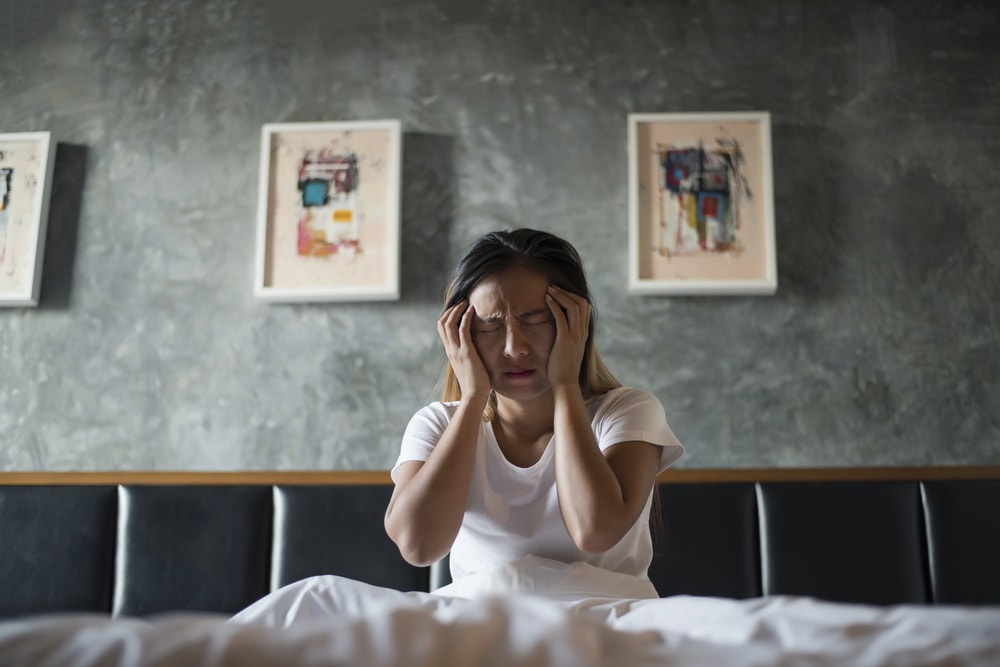Our body’s composition to function differently at different stages of life indicates progress towards much older age; the body seems to respond and show signs considering the precipitating factors of growing years.
Men and women experience their old age differently, and the counterreaction of both the sexes towards these growing signs of age is distinguishable. However, women cross certain gradual stages of hormonal changes inside their bodies.
A discerning stage of women makes them witness the emergence of diseases due to a decrease in average levels of the hormone inside the body. The phase where these levels of hormone begin to disrade is known as Menopause. Menopause refers to the level of hormonal body changes where ovaries stop producing estrogen and other sex hormones.
Likely, the fertility of women reduces as well, and other changes are undergone inside the body such as fatigue, increasing of thyroid hormone levels, lowering of bone density, no menstrual cycle for the next 12 continuous months. Even though ovaries don’t release the needed hormones in a woman’s body, but the other parts of the body still do, but they aren’t enough to support the normal functioning of a female’s body. It is the age factor which is natural and necessarily occurs in women.
Before arriving at the stage of Menopause, a woman’s body signals of the arrival of that stage where the menstrual cycle would take a halt, and the hormones in the body would haphazardly start changing at their own pace. It is not an overnight process, but it takes years to reach a specified phase in every women’s life.
Before Menopause, it is the stage which hints of the arrival of it, known as ‘PERI’-Menopause or a similar term given to it is ‘PRE’-Menopause.
Both these terms reflect the idea of a period that is surrounding or just before entering into Menopausal.
The terminology, according to the doctors, is set depending on the first and the last menstrual cycle of a woman, and ‘Perimenopause’ lies just between the both of them.
What are these stages exactly?
The stages before and after a woman’s beginning of Menopause are differentiated from each other through two other phases, which makes it clear about the happenings inside the body and the rate at which hormones transform, showing signs of specific illness or discomfort as well, and this phase includes:
Peri/Pre Menopause
It occurs typically 3-4 years before the arrival of the Menopause phase. But the experts believe that the beginning of this could be ten years before, between the age of 30-40 years. Ovaries stop producing estrogen hormones. The concluding factor of which will be their inability to release eggs, hence no more periods.
A woman can get pregnant while she is at the stage of Perimenopause as the hormonal levels did not get dropdown altogether. As a woman proceeds towards Menopause, slowly and gradually, the symptoms become more prominent.
Menopause
When a woman did not have her menstrual cycle for over 12 months consecutively, this means that she has reached the stage of Menopause. The phase would indicate that ovaries have stopped producing estrogen hormones and releasing eggs, which are responsible for her fertility as well.
It is believed that the symptoms of Peri-menopause continue to move towards the Menopause stage as well and are just the extension of the previous phase.
Post Menopause
This particular phase begins after a woman has crossed over the menopause phase and is now experiencing the symptoms and discomfort associated with a reduction in estrogen levels in the body. It is advisable for a woman at this stage to meet regular checkup criteria with her physician and discuss potential methods and treatments to reduce the side effects of Menopause.
Moreover, some women experiencing the coming of Menopause even before stepping in their 40s. This is known as Premature Menopause, and sometimes a doctor prescribes medication or any surgery could lead to early Menopause.
But apart from this exceptional situation Perimenopause lasts 3-10 years from the first till the last period of a female and then finally sets foot into the Menopause phase.
Some Symptoms & Coping factors of Each Stage
Pre Menopause
The tenure before the beginning of Menopause would show signs like irregular menstrual flow, ability to be fertile but also occurring of Premenstrual syndrome (PMS). Other symptoms might include:
- mood swings
- Signs of Depression
- Being Anxious or Irritable
- Nausea
- Tender Breasts
How to Cope: It is advisable to use heating pads or hot bags during menstrual cramps and trying to moderate the levels of PMS by some prescribes pain medicine (after proper consultation from a gynecologist).
Perimenopause
Irregular menstrual flow is the first showing of symptom before reaching Menopause and during the stage of Peri-Menopause, and the other signs include:
- Hair Loss
- Insomnia
- Hot flashes or the overwhelming sense of heat
- Unable to Concentrate
- Sudden Mood Swings
- night sweats
- Feeling of an overactive bladder but the passing of a small amount of urine every time
- A rapid increase in Weight
- Vaginal Dryness
How to Cope: Irregular menstrual flow leads to heavy bleeding and unbearable pain and cramps, which is sometimes cured with the help of an oral contraceptive pill. Oral Contraceptive helps in decreasing the effects of reduced hormonal levels, such as low bone density and chances of Ovarian Cancer. Although to reduce hot flashes, it is advised to adopt measures such as,
- Try to breathe slowly and more deeply.
- Avoid spicy foods, which probably help in increasing those hot flashes.
- Consume more cold fluid and liquids such as water, juice, etc.
- Wear comfortable and loose clothing, which are easily removable.
There are estrogen pills available in the market, which helps in reducing the side effects of the low estrogen level and therapies related to the same. But these therapies result in the risk of cancer sometimes. So, another alternative could be consuming antidepressant pills.
Other than that, there are creams prescribed by a physician for the hot flashes, which gives much relief.
Menopause
When a woman is of about an average age of 51 years, she has reached the stage of Menopause wherein she has not witnessed menstrual flow from the last 12 months. A woman might experience elevated levels of perimenopausal symptoms due to a rapid reduction in hormone levels, and the symptoms might include:
- Hot Flashes
- Inability to sleep properly
- Vaginal Dryness
Post Menopause
This stage lasts for the rest of her life for a woman after she has stepped into Menopause. Doctors can probably ask for blood reports to identify whether a woman is in the post menopause phase or not. The most crucial element in this phase is the increased level of follicle-stimulating hormone.
How to Cope: The symptoms of the Menopausal phase almost vanishes at this last stage, but vaginal dryness, mood swings, inability to sleep could still affect a woman. Sometimes women choose menopausal hormone therapy (MHT), which involves Estrogen and Progesterone.
MHT can reduce Vasomotor symptoms such as vaginal dryness but could increase the chances of Heart Attack, Stroke, or breast cancer.




